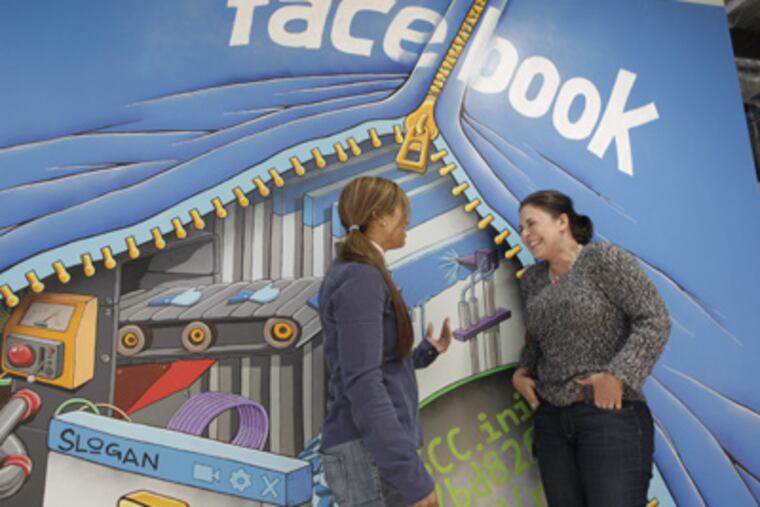Facebook a cultural as well as business phenomenon
SAN JOSE, Calif. — When Facebook goes public — as it’s expected to do this week in what is almost certain to be the biggest stock debut for an Internet company — it will be more than a financial milestone. It will also reflect how tightly a company launched eight years ago in a college dorm room has been woven into the fabric of society. In its ability to shape how people around the world communicate, debate, shop, entertain, and inform themselves, Facebook may be the biggest technological advance since broadcast television.

SAN JOSE, Calif. — When Facebook goes public — as it's expected to do this week in what is almost certain to be the biggest stock debut for an Internet company — it will be more than a financial milestone. It will also reflect how tightly a company launched eight years ago in a college dorm room has been woven into the fabric of society.
In its ability to shape how people around the world communicate, debate, shop, entertain, and inform themselves, Facebook may be the biggest technological advance since broadcast television.
David Kirkpatrick, author of the best-seller The Facebook Effect, for years covered technology titans such as IBM Corp. and Microsoft Corp. but said, "It wasn't until I saw Facebook that I saw a company that was going to change the way life is lived."
Facebook, observers say, is changing how business, politics, and society operate.
"Word of mouth, 150 years ago, spread very slowly," Twitter cofounder Jack Dorsey said. "Now, anyone in Iraq can post audio of what's happening there, and anybody in the world can listen to it."
Facebook was by no means the first social network, nor the first to become massive. But it has taken off like few companies have due to cofounder and chief executive Mark Zuckerberg's focus on the product and to a number of technological shifts, including the increased speed of broadband Internet connections and the lowered cost of storing data online.
And Facebook's success has blazed trails for other social media companies.
Travis Katz, an early employee at MySpace, the pioneering social network that ultimately was surpassed by Facebook, said the social movement is "reshaping the Web and completely disrupting markets." Just a few years ago, he noted, companies such as Yahoo and AOL dominated the consumer Internet, but they tried to broadcast information to a mass audience, much like television or radio.
Facebook, Katz said, has trained people "to expect the Web to be personalized to them."
That has also created opportunities for new companies to piggyback on Facebook's success. BranchOut, for instance, lets users troll their Facebook network for jobs. Spotify lets people share and discover new music with their Facebook friends.
By allowing other companies to build on Facebook's platform, Zuckerberg has made a canny decision that will likely ensure growth even as its own user base maxes out, Katz and Kirkpatrick both said.
Facebook is also reshaping the political system, taking power out of the sole purview of consultants and traditional media and putting it more directly in the hands of voters.
Rory O'Connor, an Emmy-winning former producer for CBS News and PBS, has written a new book, Friends, Followers and the Future, that looks at how social media, and Facebook in particular, are changing political campaigns and the media's role.
Social networks were a huge factor in Barack Obama's 2008 presidential campaign, letting the novice garner supporters and raise money despite competing with better-known candidates. Facebook cofounder Chris Hughes, in fact, helped build Obama's social networking site.
O'Connor and others say this year's election will be dominated even more by social media, and whoever uses it most effectively will win.
Both Obama's and rival Mitt Romney's campaigns have brought in experts from the advertising industries to sift through the massive amounts of data Facebook compiles on its users, O'Connor said. Some observers liken the trove to a super-sophisticated polling system of the electorate.
"You and I might see a different Romney video based on our zip code and what we say on Facebook about whether we're liberal or conservative," O'Connor said. "That is a major, major departure from what's ever been done in political campaigning."